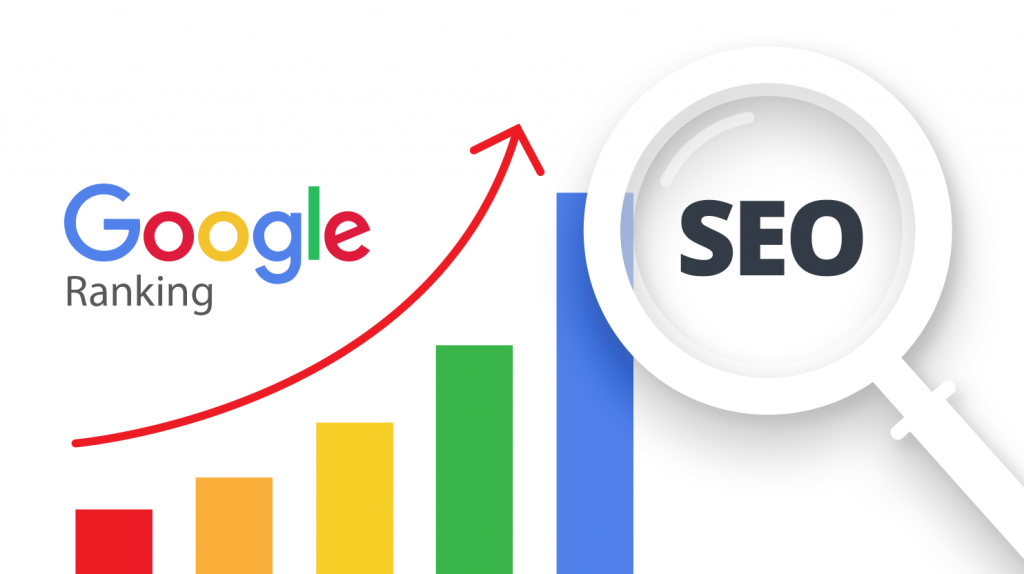Cracking the Code: A Comprehensive Guide to Website Ranking

Cracking the Code: A Comprehensive Guide to Website Ranking
The Importance of Website Ranking:
Website ranking refers to where your site appears in search engine results pages (SERPs). Higher rankings translate to increased organic traffic, which can lead to more leads, sales, and brand recognition.
How Search Engines Work:
Search engines like Google, Bing, and Yahoo use complex algorithms to crawl, index, and rank websites. These algorithms consider numerous factors when determining a website's position in search results.
Key Ranking Factors:
We'll delve into the critical ranking factors, including:
Content Quality: High-quality, relevant, and original content is a top-ranking factor.
Keyword Optimization: Properly optimizing content with relevant keywords is crucial.
Backlinks: The quantity and quality of websites linking to yours influence rankings.
User Experience (UX): Factors like page speed, mobile-friendliness, and site structure impact UX and rankings.
Technical SEO: Elements like metadata, sitemaps, and schema markup play a role.
On-Page SEO Optimization:
Learn how to optimize on-page elements, including title tags, meta descriptions, headers, and content, to improve rankings.
Off-Page SEO Strategies:
Explore off-page strategies such as link building, social signals, and online reputation management to boost your website's authority.
Local SEO:
For businesses with a physical presence, discover the importance of local SEO and how to optimize for local searches.
Mobile Optimization:
With mobile searches on the rise, we'll discuss the significance of mobile optimization and best practices for achieving high mobile rankings.
Content Strategy:
A robust content strategy is essential for ranking. Learn how to create and optimize content that appeals to both users and search engines.
Analytics and Tracking:
Explore tools like Google Analytics and Search Console to monitor your websites performance and make data-driven improvements.
Staying Up-toDate:
- Search engine algorithms evolve. We'll discuss how to stay informed about algorithm updates and adjust your SEO strategy accordingly.
Common Mistakes to Avoid:
- Highlight common SEO mistakes that can harm your website's ranking and how to rectify them.
Measuring Success:
- Learn how to set clear goals, track progress, and measure the success of your SEO efforts.
The Future of Website Ranking:
- Briefly touch on emerging trends and technologies, such as voice search and artificial intelligence, that may impact website ranking in the future.
Here are the benefits of achieving a high website ranking in search engine results:
Increased Organic Traffic: Higher website rankings lead to increased organic (non-paid) traffic. When your website appears at the top of search results more users are likely to click on your link resulting in a steady stream of visitors.
Enhanced Visibility: Ranking well in search results enhances your online visibility. Users are more likely to trust and click on websites that appear on the first page of search engine results, which can significantly boost your websites exposure.
Credibility Trust: Websites with high rankings are often perceived as more trustworthy credible by users. Achieving a top position in search results can lend authority to your brand or content.
Improved User Engagement: Websites that rank high are often better optimized for user experience (UX). A positive UX, including fast loading times and mobile-friendliness, encourages users to stay longer on your site, explore more pages, and engage with your content.
Higher Conversion Rates: Quality traffic from high search rankings is more likely to convert into leads or sales. When users find relevant valuable information on your website, they are more inclined to take the desired action whether it's making a purchase
signing up for a newsletter, or contacting you.
Competitive Advantage: Outranking your competitors in search results gives you a competitive edge. Users tend to click on the top results, which means you can capture market share and potentially attract customers who might have gone to your competitors.
Cost-Efficiency: Organic traffic generated through high rankings is cost-effective compared to paid advertising. While it takes time and effort to optimize for search engines, the long-term benefits can outweigh the costs.
Global Reach: High search rankings can extend your reach beyond your local market, helping you attract a global audience. This is especially beneficial for e-commerce businesses and those targeting international markets.
Measurable Results: Website ranking can be tracked and measured using various analytics tools. This data allows you to assess the effectiveness of your SEO efforts and make informed decisions to improve your strategy.
Brand Awareness: Consistently appearing in top search results increases brand visibility and awareness. Even if users don't click on your link immediately, repeated exposure to your brand can lead to future engagement.
Adaptability to Market Trends: Staying on top of SEO trends and optimizing your website for higher rankings allows your business to adapt to changing market conditions and user preferences.
Long-Term Sustainability: Unlike some short-term marketing tactics, achieving and maintaining high website rankings can lead to sustained, long-term success and growth for your online presence.